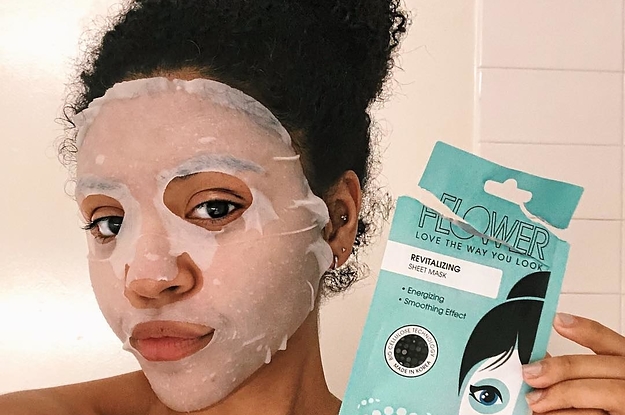As busy, empire-building women, we can’t always make it to the spa or an esthetician for a “proper” facial, so instead we settle for an easily accessible sheet-mask from our favorite drugstore! With countless options to choose from for an array of skin troubles – or simply relaxation purposes – it would seem you can’t go wrong. However, are these masks really doing our skin any justice?
New York and New York City-based dermatologists, Debbie Palmer, D.O. and Dendy Engelman, M.D., spoke to Women’s Health Mag to share their take on the popular facial product and here are the important takeaways:
A SHEET-MASK IS…
PHOTO: Fashionista
Before we dive deep, it’s important to understand what a sheet-mask actually is. To put it simply, it’s a thin-fabric or material in the shape of a face, which sits in an individual package which is filled with a serum meant to fulfill a particular need.
According to Engelman: “Sheet masks have a higher concentration of actives than a topical product, and depending on the material, the sheet can help deliver products deeper into the skin…”
WHAT CAN THEY BE USED FOR?
PHOTO: Huda Beauty
As mentioned above, sheet-masks come in all kinds of formulas including soothing, brightening, anti-dryness, anti-aging and everything in between. However, Palmer says they are best used for hydration. Because the masks being laid on your face, this prevents the product from evaporating, giving nutrients the opportunity to penetrate the skin at an accelerated rate.
According to Women’s Health Mag, some of the active ingredients found in most masks that help with hydration are: hyaluronic acid, “creating a barrier for the skin, locking in moisture, and improving texture;” ceramides, which can “block out the environmental factors that can disrupt the lipid layer of skin, which locks in moisture and acts as a barrier against skin hazmat like pollution and bacteria;” and antioxidants, which can “block out the environmental factors that can disrupt the lipid layer of skin, which locks in moisture and acts as a barrier against skin hazmat like pollution and bacteria."
ARE THEY SAFE FOR ACNE-PRONE SKIN?
PHOTO: Refinery29
The “prevention” factor of sheet-masks may not always be good for those with acne-prone skin.
“Increasing the temperature can increase the bacteria count on the surface of the skin, causing acne,” Palmer said.
Before making a full commitment, she suggests testing the mask on a section of your face first. The next day if your skin looks to be irritated in that spot, you may not want to use that particular mask on your entire face.
HOW CAN I GET THE MOST OUT OF MY MASK?
PHOTO: YouTube
While most masks won’t be made to perfectly fit your unique face shape, Palmer says there is a method to aligning your mask correctly. You want to start by placing the mask on your forehead and lining it up with your eyes to avoid air bubbles. Then pat down the cheeks and press down to the chin and voila! You are set for your allotted treatment time.
ARE THESE MASKS ACTUALLY SANITARY?
PHOTO: Pinterest
They are! Because the masks are vacuum-sealed and are made with a pre-measured amount of product, they are safe to use. Throw the mask away and use the remaining product on your face as a moisturizer without having to rinse your face.
CAN I USE THEM EVERYDAY?
PHOTO: Peach & Lily
Technically you can, but if you aren’t trying to break the bank, you might want to save your sheet-masks for special self-care moments only.
Ready. Set. Boss. Our daily email is pouring out inspiration with the latest #BlackGirlBossUp moments, tips on hair, beauty and lifestyle to get you on track to a better you! Sign up today.
